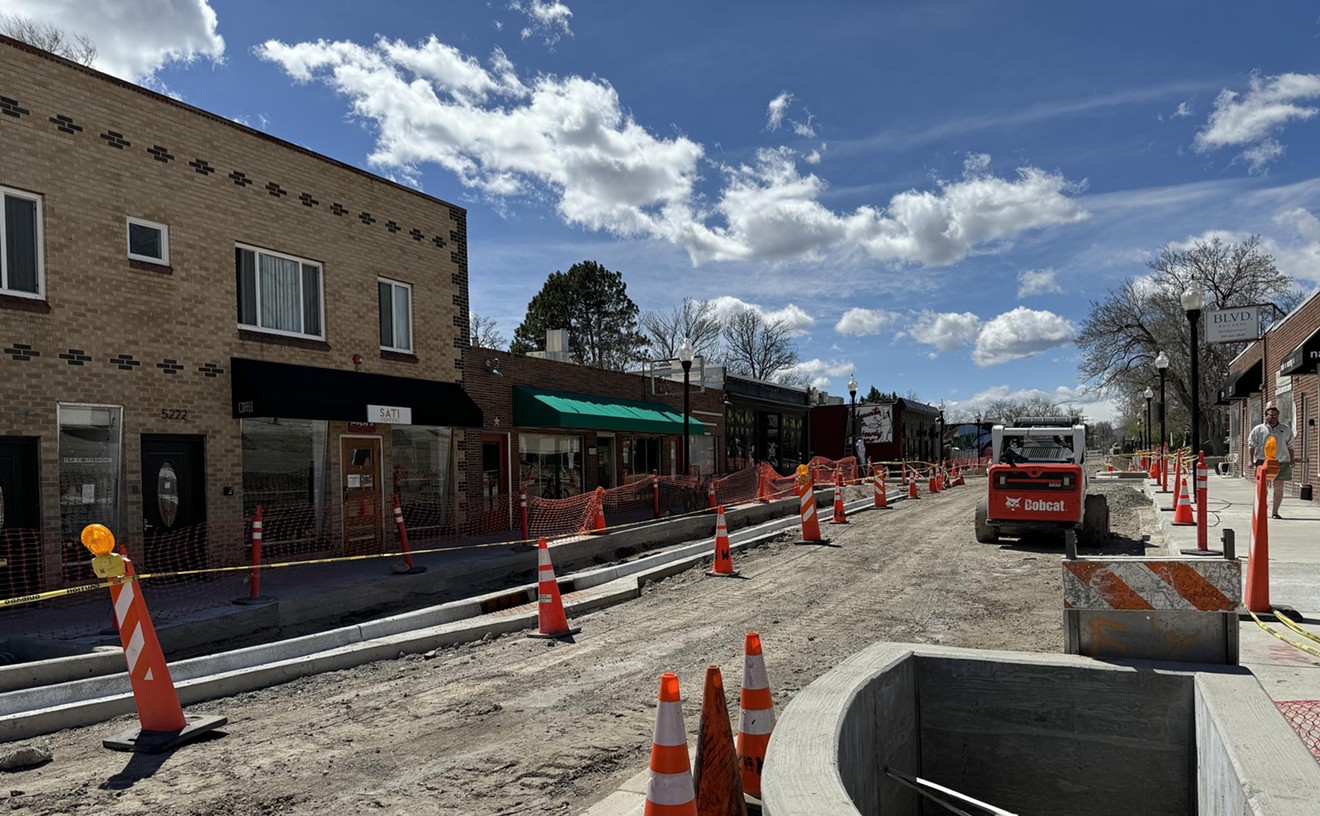Imagine this scenario: You’re on the brewery bus tour, hopping from tap room to tap room, trying out new beers and getting a nice buzz on without worrying about driving — and then you notice that the bus driver is drinking, too. In fact, he’s been matching you pint for pint. Would you say something? Would you find another way home? Would you just ignore it?
Those are tough questions — and they make us feel all squishy and guilty and irritated inside. And that’s just what the Colorado Department of Transportation was after when it filmed a new public-service video (see it here) that “punks” the unsuspecting public with a fake tour company. The goal is to raise awareness about the fact that even small amounts of alcohol can result in a DUI.
Here’s how it worked: CDOT workers trolled brewery- and beer-event customers, pretending to be representatives of “A Few Brews Denver,” a new brewery bus-tour group. They offered people a free three-hour tour if they’d agree to be in a “promotional video” that the company was making.
“Who wouldn’t want to do that?” asks CDOT spokesman Sam Cole, explaining that the agency targeted people, mostly men, between 21 and 34 years old, because they’re the ones with the highest DUI fatality rate. An average of 77 people are arrested in Colorado daily for DUI.
On the day of the tour, CDOT used two hired actors to escort participants to three River North breweries — Our Mutual Friend, Epic Brewing and Ratio Beerworks — which is where the action in the video starts. All three of the breweries had given permission to CDOT to film there, although at least two of them, OMF and Epic, asked that their names and logos not be used (but a discerning eye can figure it out).
Over the course of the three-hour tour, both the guide, Jack, and the driver, James, mingled and drank beer alongside the tour-goers, but “not one of the participants seemed concerned that [the driver] was drinking and driving,” CDOT says. At each stop, they would all re-board the bus and drive to the next location (even though all three breweries are located within a two-block radius of each other).
In the end, the guys revealed that were actors and that the driver had actually been drinking non-alcoholic beer the whole time. “No one was angry, they were just incredibly surprised. It took a little while for a few of the people to understand exactly what was happening,” Cole says of the big reveal. “I think they all regretted that they hadn’t spoken up.”
Cole says CDOT came up with the idea for a brewery tour because breweries are very popular right now — and not because they pose any more of a problem than other establishments that serve alcoholic beverages. In fact, since breweries aren’t typically a place where people go to get “smashed,” they worked even better for the purposes of this social experiment, he explains. “You might try a sampler or some tasters after work, but the point is that just one or two can put you over the line.”
The breweries “were all delighted to participate,” Cole adds.
“Seventy percent of males age 21-35 believe they are safe to drive after one to two drinks,” a 2015 CDOT survey states. “When in reality, after two drinks a person’s Blood Alcohol Content can hit 0.08 percent, which is over the legal limit. Moreover, in Colorado the Drinking While Ability Impaired law starts at 0.05 percent BAC.”
“We wanted a stunt,” Cole says. “After one, two, three drinks — we gave people a chance to say something at each stop. But they didn’t. It mirrors what happens in real life. When do you speak up? For a lot of people, they don’t until they see that someone is physically impaired. But it isn’t always apparent. So, we want people in that demographic to picture themselves in that same kind of situation and decide for themselves beforehand if they would speak up.”
Our Mutual Friend co-owner Brandon Proff says that “as a business who’s selling alcohol, we felt like it was something worth participating in as a location.” But he did ask CDOT to switch out the identifying glassware: “I just don’t see it as an advertising opportunity, so we opted to keep the focus on the purpose of the PSA.”
All of the participants were given vouchers for an Uber ride home.
[
{
"name": "Air - MediumRectangle - Inline Content - Mobile Display Size",
"component": "12017618",
"insertPoint": "2",
"requiredCountToDisplay": "2"
},{
"name": "Editor Picks",
"component": "17242653",
"insertPoint": "4",
"requiredCountToDisplay": "1"
},{
"name": "Inline Links",
"component": "18838239",
"insertPoint": "8th",
"startingPoint": 8,
"requiredCountToDisplay": "7",
"maxInsertions": 25
},{
"name": "Air - MediumRectangle - Combo - Inline Content",
"component": "17261320",
"insertPoint": "8th",
"startingPoint": 8,
"requiredCountToDisplay": "7",
"maxInsertions": 25
},{
"name": "Inline Links",
"component": "18838239",
"insertPoint": "8th",
"startingPoint": 12,
"requiredCountToDisplay": "11",
"maxInsertions": 25
},{
"name": "Air - Leaderboard Tower - Combo - Inline Content",
"component": "17261321",
"insertPoint": "8th",
"startingPoint": 12,
"requiredCountToDisplay": "11",
"maxInsertions": 25
}
]











